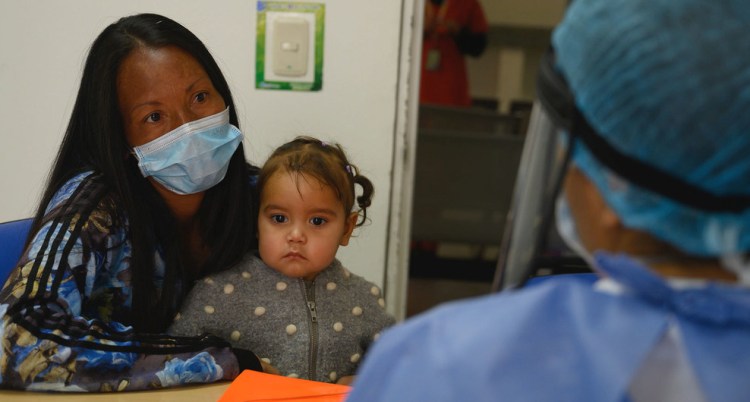WHO concerned about COVID-19 impact on indigenous people in the Americas
More than 70,000 cases and over 2,000 deaths were reported among this population as of 6 July, according to the UN agency.

With the Americas still the epicentre of the COVID-19 pandemic, the impact on the region’s indigenous people is of deep concern, the World Health Organization (WHO) said on Monday.
More than 70,000 cases and over 2,000 deaths were reported among this population as of 6 July, according to the UN agency.
There have been at least six cases among the Nahua people, who live in the Peruvian Amazon, the latest information has revealed.
A vulnerable population
WHO chief Tedros Adhanom Ghebreyesus explained that because indigenous people are among the world’s poorest and most vulnerable groups, they are especially at risk of contracting the disease.
“Like other vulnerable groups, indigenous peoples face many challenges. This includes a lack of political representation, economic marginalization and lack of access to health, education and social services”, he said, speaking from Geneva during the regular crisis update.
“Indigenous peoples often have a high burden of poverty, unemployment, malnutrition and both communicable and non-communicable diseases, making them more vulnerable to COVID-19 and its severe outcomes.”
Stepping up action
WHO’s Regional Office for the Americas recently published recommendations for preventing and responding to COVID-19 among indigenous peoples.
The agency also is working with the Coordinator of Indigenous Organizations of the Amazon River Basin, to step up the fight against the disease.
Lessons learned from Ebola
WHO also used the briefing to underline the importance of contact tracing to suppress COVID-19 transmission among indigenous communities and the population at large.
The process is essential as more countries begin to re-open after lifting lockdown measures.
“One of the lessons from the recent Ebola outbreak in the eastern Democratic Republic of the Congo, which was declared over the last month, is that contact tracing can be done even in the most difficult circumstances, with security problems”, Tedros told journalists.
Dr Ibrahima Socé Fall, WHO Assistant Director-General for Emergency Response, said contact tracing helps break the further transmission of COVID-19, thus reducing its caseload and impact.
“What we need to understand is that contact tracing is not an isolated practice. It is part of the best practices for epidemiology,” he said, speaking in French.
Experimental vaccine ‘good news’
WHO has welcomed promising news about a potential vaccine against COVID-19, as research into treatments in multiple countries, continues.
An experimental vaccine developed by Oxford University and the pharmaceutical company AstraZeneca appears safe and triggers an immune response, according to a study published in the medical journal The Lancet.
“It is good news”, said Dr Michael Ryan, Executive Director of WHO’s Health Emergencies Programme, though he cautioned that “the data is very new”.
Dr Ryan said the vaccine was given to 1,000 healthy adults aged 18 to 55 years. None appeared to suffer any serious adverse effects, other than chills, muscle aches and headaches, which were expected.
“But again, there is a long way to go”, he said. “These are phase one studies. We now need to move into large-scale, real-world trials, but it is good to see more data and more products moving into this very important phase of vaccine discovery.”
Dr Ryan reported that 23 COVID-19 candidate vaccines are currently in clinical development.
Visit UN News for more.
ALSO READ
BRIEF-AstraZeneca Says Imfinzi Improved OS & PFS In Limited-Stage SCLC
BRIEF-Astrazeneca Says All Resolutions Were Supported At Today's AGM
BRIEF-Astrazeneca To Increase 2024 Dividend By 7%
AstraZeneca shareholders approve 2024 pay policy at AGM
AstraZeneca shareholders approve 2024 pay policy in boost to CEO Soriot










